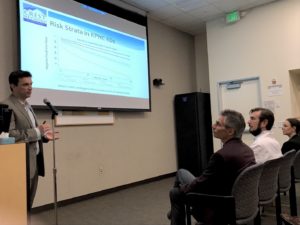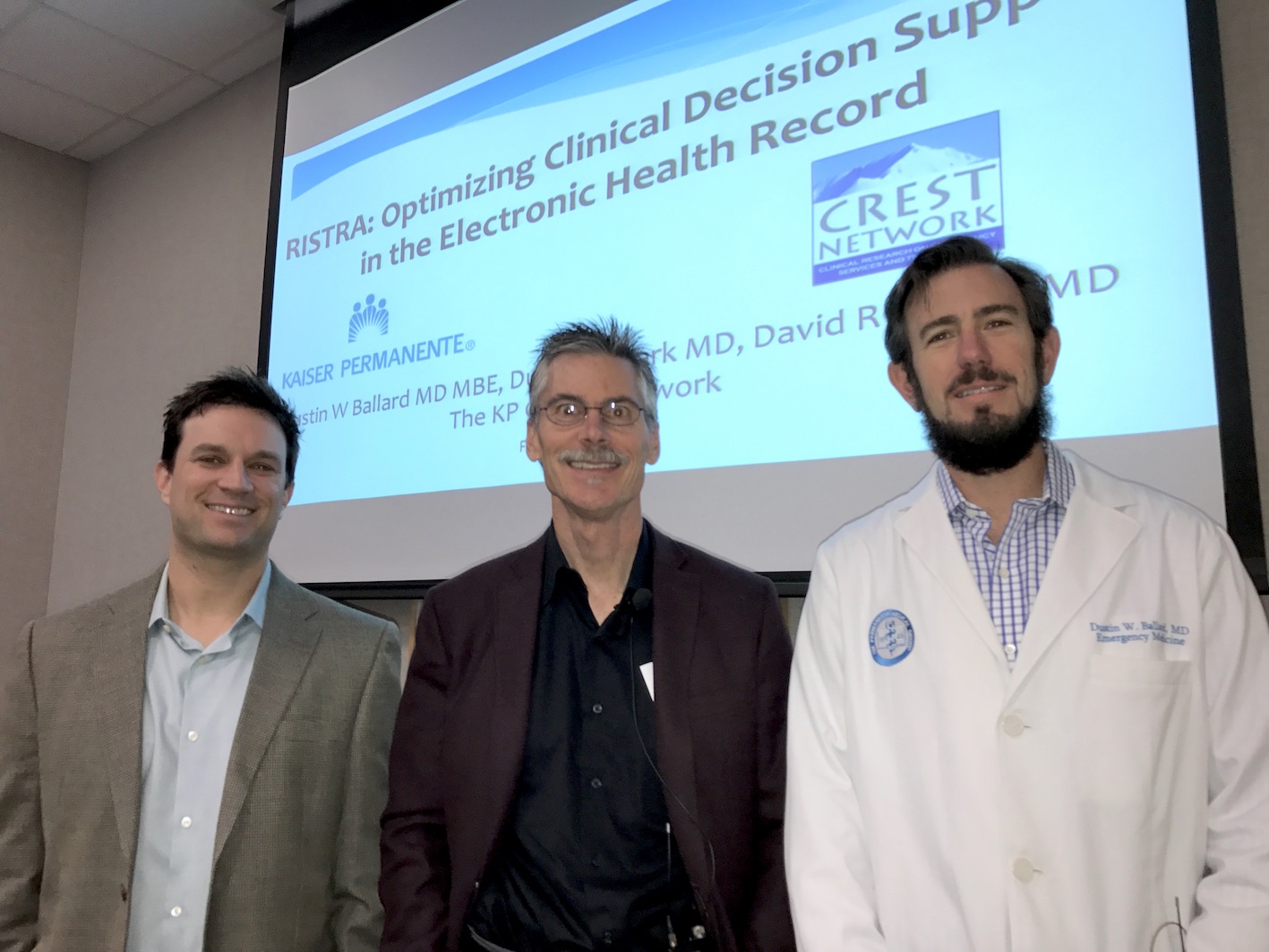OAKLAND, Calif. — A new study, which reviewed more than 118,000 patients arriving at Kaiser Permanente’s Northern California emergency departments with chest pain over a three-year period, will allow doctors to more accurately estimate these patient’s risk for future major cardiac events and tailor follow-up plans accordingly.
The Kaiser Permanente study, “Performance of Coronary Risk Scores among Patients with Chest Pain in the Emergency Department,” was published February 13 in the print version of the Journal of the American College of Cardiology (JACC).
Chest pain is the second leading reason for visits to emergency departments in the United States, with an estimated 7 million visits in 2010 and annual cost of $5 billion.

“Despite the fact that the vast majority of people with chest pain do not have a life-threatening heart condition, expensive and time-consuming follow-up tests such as stress-tests are often routinely performed,” said Dustin Mark, MD, the study’s lead author and an emergency department physician at the Kaiser Permanente Oakland Medical Center.
The study was spearheaded by emergency department physicians in Kaiser Permanente’s Clinical Research on Emergency Services and Treatments (CREST) Network.
Based on the results, the CREST physician researchers have implemented a new decision rule for managing the follow-up of chest pain in Kaiser Permanente emergency rooms across Northern California.
“This evidence will help Kaiser Permanente emergency physicians accurately identify patients with chest pain who are at very low risk and or higher levels of risk for major cardiac events, so that patients at lower risk can potentially avoid unnecessary workups,” said senior author Mary Reed, PhD, research scientist with the Kaiser Permanente Division of Research.
“It will help us get the right care to the right patients at the right time, when they come in with chest pain.”
Largest analysis of cardiac risks from chest pain
Funded by a Delivery Science Program grant from The Permanente Medical Group, the study is the largest examination of the performance of two risk scores — the modified History, Electrocardiogram, Age, Risk factors and Troponin (HEART) score and the Emergency Department Assessment of Chest Pain Score (EDACS) — among patients presenting to emergency departments with chest pain.
In a retrospective analysis, the researchers assessed the accuracy of these two measures in 118,822 patients with possible acute coronary syndrome who visited Kaiser Permanente’s 21 community-based emergency departments in Northern California for chest pain in 2013, 2014 and 2015.
Both measures accurately predicted that the majority of patients were at very low risk of a major adverse cardiac event within two months. “We also demonstrated a novel finding: that the risk scores were further optimized by using a lower cutoff level for cardiac troponin, a protein released during heart attacks,” Mark said. Additionally, they found that the EDACS predicted this very low risk for a significantly greater proportion of patients than did the Modified HEART score.
In addition to Mark and Reed, co-authors of the study were Uli Chettipally, MD, MPH, Mamata V. Kene, MD, MPH, Megan L. Anderson, MD, Dustin W. Ballard, MD, MBE, and David R. Vinson, MD, all emergency department physicians in Kaiser Permanente Northern California; Jie Huang, PhD, of the Kaiser Permanente Division of Research; and Erik P. Hess, MD, MSc, of the Mayo Clinic.
About the Kaiser Permanente Division of Research
The Kaiser Permanente Northern California Division of Research conducts, publishes and disseminates epidemiologic and health services research to improve the health and medical care of Kaiser Permanente members and society at large. It seeks to understand the determinants of illness and well-being, and to improve the quality and cost-effectiveness of health care. Currently, DOR’s 550-plus staff is working on more than 350 epidemiological and health services research projects. For more information, visit divisionofresearch.kaiserpermanente.org; follow us @KPDOR; or check out our Research Spotlight blog.





This Post Has 0 Comments